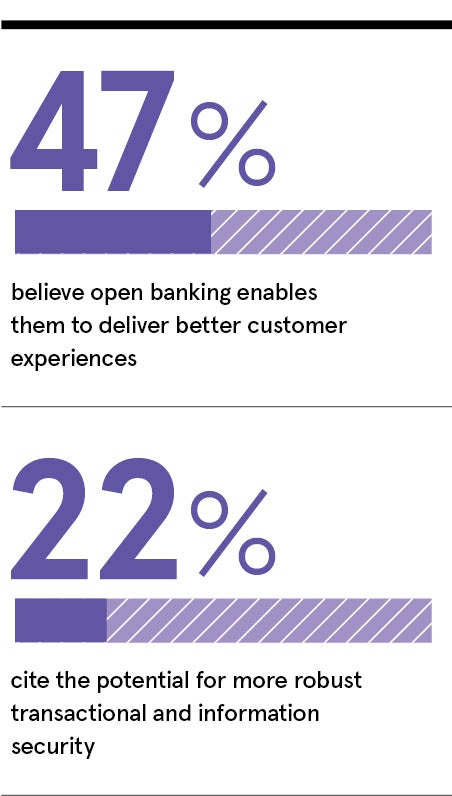SPONSORED BY Yolt Technology Services
User experience has been at the heart of recent progress in how financial services are delivered. Open banking allows account holders to share financial data securely with, and initiate payments through a range of useful apps and personalised services through application programming interfaces (APIs), and since its launch in 2018 expectations of what can be delivered have heightened.
While open banking has already transformed what banks and financial technology companies can offer, customers now expect more: they want a powerful experience that puts them at the centre and reflects their entire financial life.
Given the vast societal impacts of the Covid-19 pandemic, such an experience will need to be delivered digitally, and financial services providers must offer reliable, useful, relevant and easy experiences at all times.
These pressures mean there is a need not just for open banking, but for open finance. This will address the complete picture of a person’s use of money, from pensions and investments, to insurance, mortgages and beyond. Customers will expect these services to be delivered instantly, on the web and on mobile apps.
“Open finance will allow customers to manage all of their personal finances in one place, giving them a complete and holistic view of their entire financial footprint, as well as access to faster, cheaper credit and personalised advice,” explains Leon Muis, chief business officer at Yolt Technology Services (YTS). In practice, open finance could mean customers rapidly accessing more relevant and affordable products, or better managing the portfolio of their investments and debts, for example.
For the financial services industry, the opportunities are abundant. A survey of over 1,000 sector professionals by YTS found that 47 per cent believe open banking enables them to deliver better customer experiences, in part from the powerful insights derived. Almost the same number are seeing improved efficiency, while a third expect increased revenue, and 27 per cent cite the potential for more robust transactional and information security. These benefits are set to be turbocharged when the scope of open banking widens to include the whole financial system.
The research also confirms that the pressures brought by Covid-19 to deliver a new level of digital services mean most institutions already offering open banking will continue to do so, with a significant number of others looking to enter the arena.
But for open banking to progress properly into open finance, there remains a technology development and integration challenge ahead, Muis warns. “Financial services providers in all areas are trying to find the best way to create such a service so they can reap the promised rewards,” he notes. However, for most companies, building an open finance service from scratch would be extremely costly and take several years.
“Faced with such a project in these conditions, most financial services companies will have to look for another route, turning to third party providers that have the scalable and efficient systems to quickly make open finance a profitable reality for them, no matter the size of their business,” says Muis. “This will be no surprise as it goes to the heart of open finance, with its imperative of using powerfully-interfaced technology to deliver all-round benefits.”
A proper ecosystem between providers will be needed if open finance is to become an efficient reality. The dedicated progress of finance firms and technology companies is expected to go a long way towards achieving this, but will not be enough on its own.
“Financial industry regulators around the world will need to play an equally active role in enabling and encouraging the development of this new landscape,” says Muis. “They have empowered massive change in open banking and now is the time to engage widely on open finance. There will need to be further consultation and testing, and the right framework, so the ground is laid for quick progress - especially given consumers’ pressing needs and expectations that have arisen during the pandemic.”
A key strand of regulators’ efforts, Muis explains, will be empowering third party open finance providers such as YTS to build and test solutions, engaging with them as a core part of ensuring the necessary conditions are in place for the ecosystem. “Given the costs and time needed for developing open finance systems, it is essential that third parties can progress and share their experiences as a priority, so the technology is made available more quickly for customers and the entire industry,” he adds.
In the UK, such change is moving ahead. In October 2020, the Financial Conduct Authority (FCA) closed its broad call for input around open finance - having attracted detailed comments from myriad finance and technology providers. There are likely to be some areas where foundational steps will be required: the YTS survey has shown already that a quarter of industry executives do not yet understand that open banking gives consumers complete control on data access. In addition, there are problems around aligning information from different businesses in multiple formats, and around sluggish update times by some providers on their system interfaces.
“It is important that regulators help with some of these foundational aspects, creating a clear definition of open finance and its security, and establishing a set of principles to ensure data alignment and excellent interfaces between all the finance firms and technology companies,” explains Muis. “Getting this right is extremely achievable considering the strong will of the industry and the existing foundation of open banking, and is imperative considering the needs of customers.”
Given the success of open banking, as open finance goes ahead there is enormous potential for financial and technology businesses to transform their growth, while revolutionising the services they provide.
To find out more about the open finance revolution, visit yts.yolt.com

